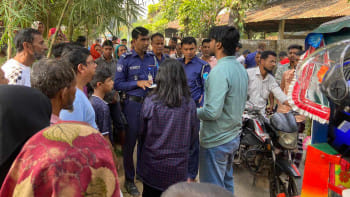Unfolding sports law

In 2003, the United Nations General Assembly in its resolution 58/5 acknowledged sport as a way to encourage learning, fitness progress and peace. Sports is now leading profit making businesses in the globe, with the proliferation of different sorts of media; the sports sector is set to develop even at a more rapid pace in the hope. This has consequence in the expansion and improvement of sports law as a discrete rule in its own. In several countries, i.e. Bangladesh, sports bodies, clubs, associations or societies are generally set up under the control of the National Sports Council of Bangladesh (NSCB).
The Bangladesh Cricket Board (BCB) and the Bangladesh Football Federation (BFF) are allied with the NSCB which is an independent government association under the Ministry of Youth and Sports, founded by the National Sports Council Act 1974. However, this Act of 1974 does not prescribe comprehensive rules and regulations for the players and lack of any dispute settlement mechanism. Nevertheless, it is an apex organisation, authorised to develop and control sports. The BCB and BFF are managed by its own constitution that has dispute settlement procedure, but its legal categorisation is vague. It is neither a corporate body nor a statutory body or a 'registered society'. On the other hand, these provisions are consistent with the instructions of the ICC and the FIFA.
Sports law is a well developed model of rules that partly covers labor law, contract law, criminal law, public law, administrative law, antitrust law, competition law, intellectual property rights law, tort law, media law, company law, human rights law, etc. These rules cover sporting framework concerning public order, drugs, security, punitive actions, manner and larger questions, linking to control or command in a trade, anti competitive trade, denigration and confidentiality rights, match fixing and the business exploitation of sports.
Sports in Bangladesh are huge vicinity of legal issues because of its rapid expansion and commercialisation. Several scams took place in the areas of sports particularly in cricket during the last few years and still no solemn endeavour on the enactment of sports law is being commenced. There is no precise law addressing corruption and gratification in sports in Bangladesh. Even, the Penal Code of 1860 and the Anti-Corruption Commission Act of 2004 does not embrace any exact provision against dishonest behaviour and corruption in spots. The laws associated with sports are still not under any policy or national concern.
Thus, it necessitates the prospect to put strong and coherent approach in relation to all legal matters connected to sports. The purpose of coherent rules would be essential: (a) to identify surrounding areas of accountability of the different societies concerned in progress and encouragement of sports; (b) to recognise nationwide sports associations suitable for contact under these guiding principle, to lay down precedences, and to detail the measures to be pursued by the associations, to gain funding and support from government; (c) to shape the requirement or standard for performance which the regime will insist upon while discharging donation to sports associations.
An autonomous, stable Office of Ombudsman for Sports should be put in place and should be given the authority to inspect and prosecute contentions of corruption and misdeed in the sport. In addition to that, there should be a sports tribunal to deal with the legal issues and disputes related to sports. Moreover, our law schools should introduce special courses on sports law in advance level of higher study. We need to produce more sports law specialists to meet the increasing demands of the changing scenario as the field is expanding day by day. Therefore, there is a requirement for moderate legislation that manages sports and carries the different establishment into a single roof.
The writer is PhD Research Scholar in Law at South Asian University, India.


 For all latest news, follow The Daily Star's Google News channel.
For all latest news, follow The Daily Star's Google News channel. 



Comments